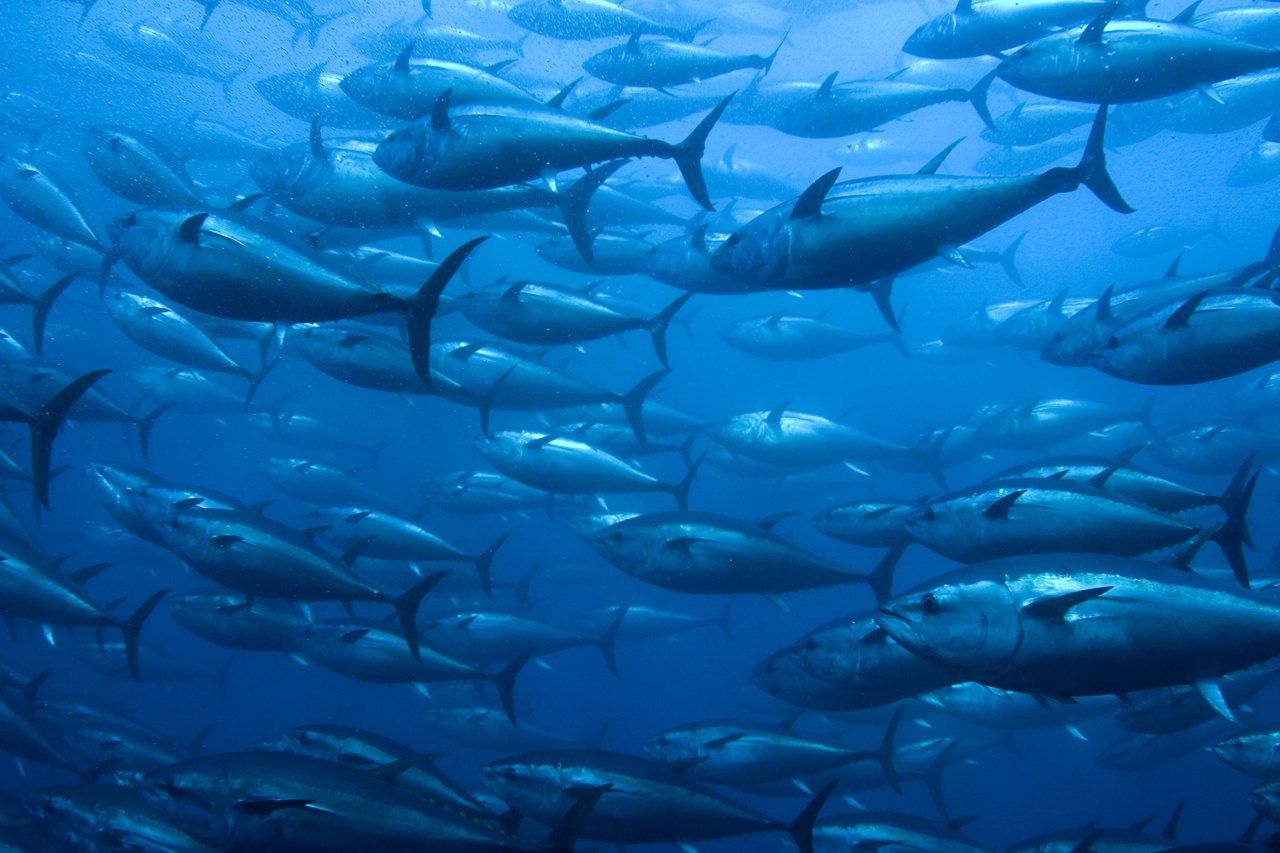
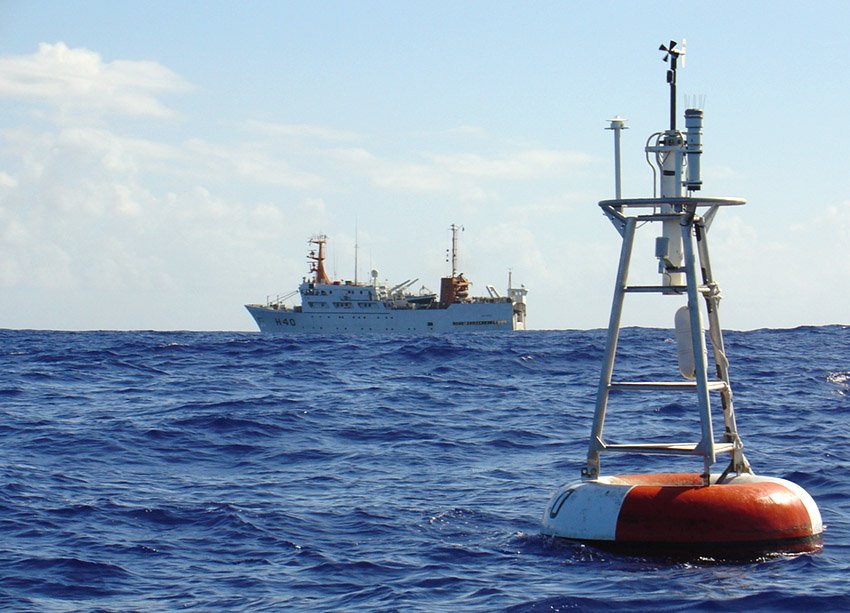

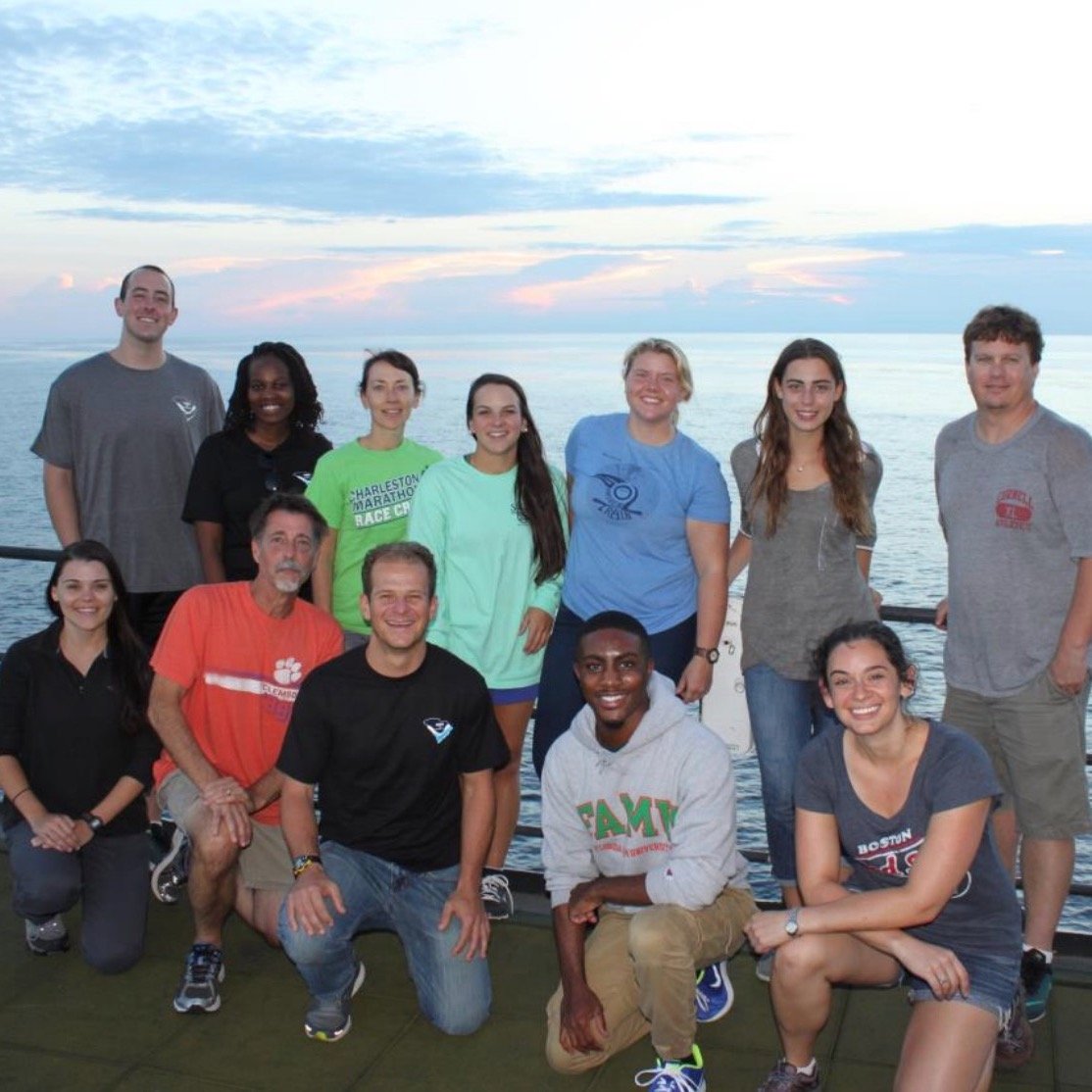

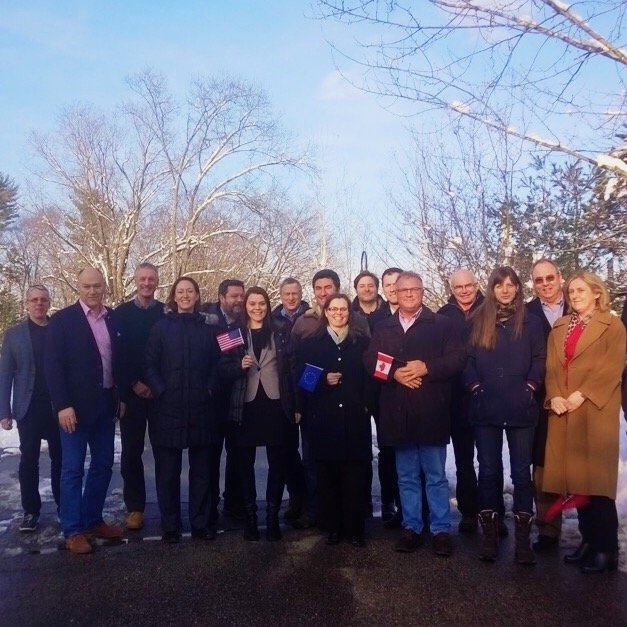
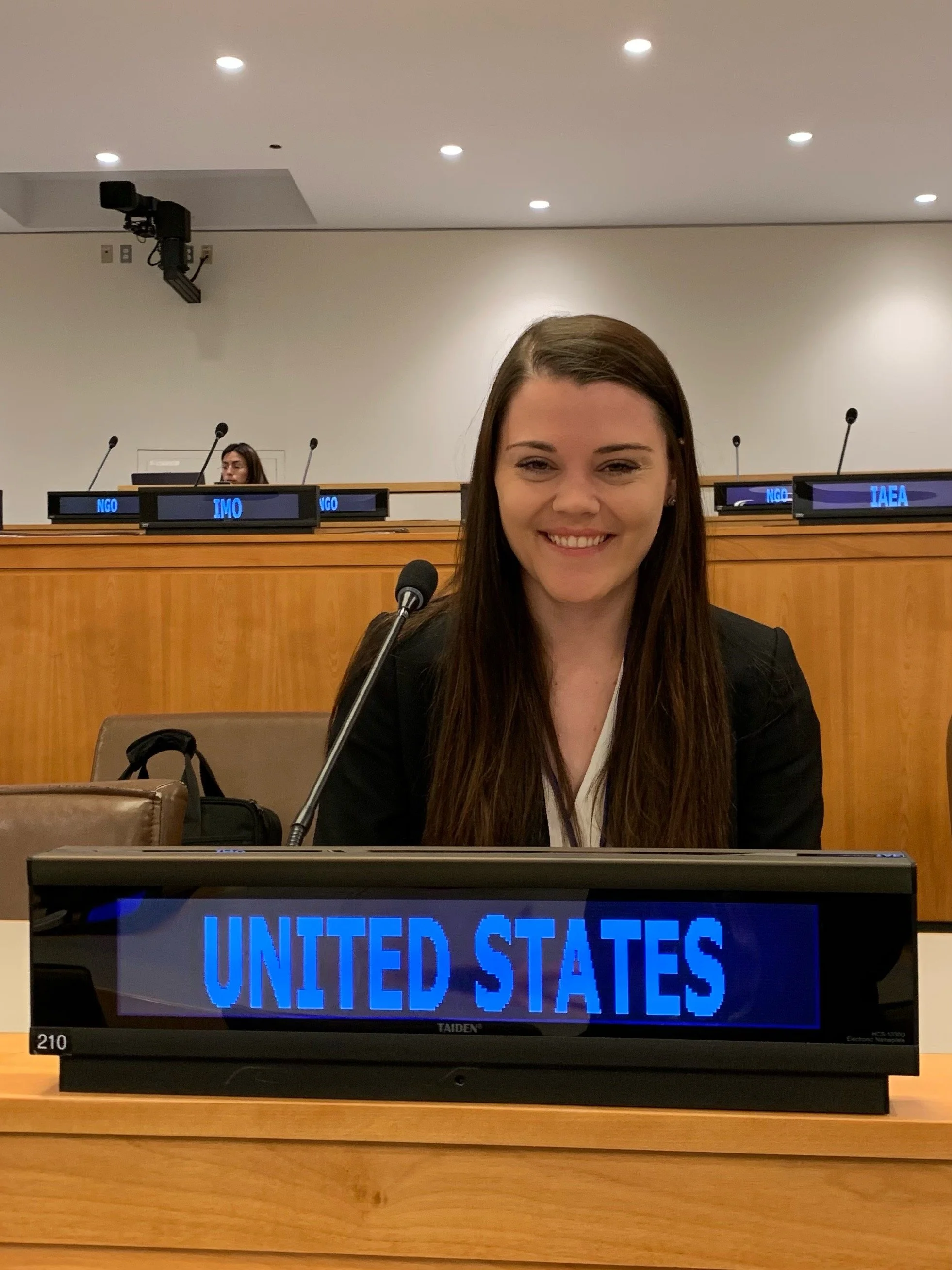
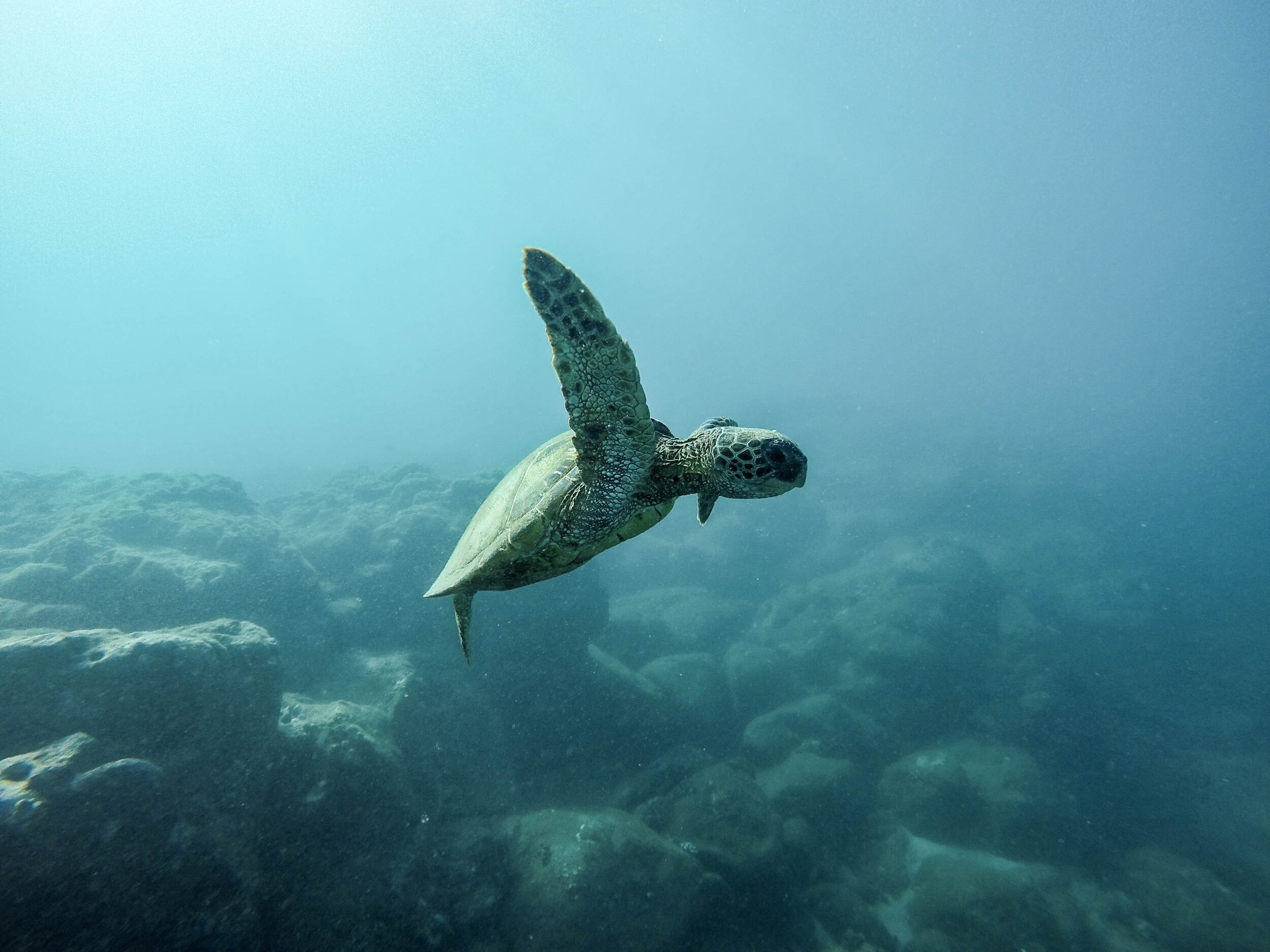
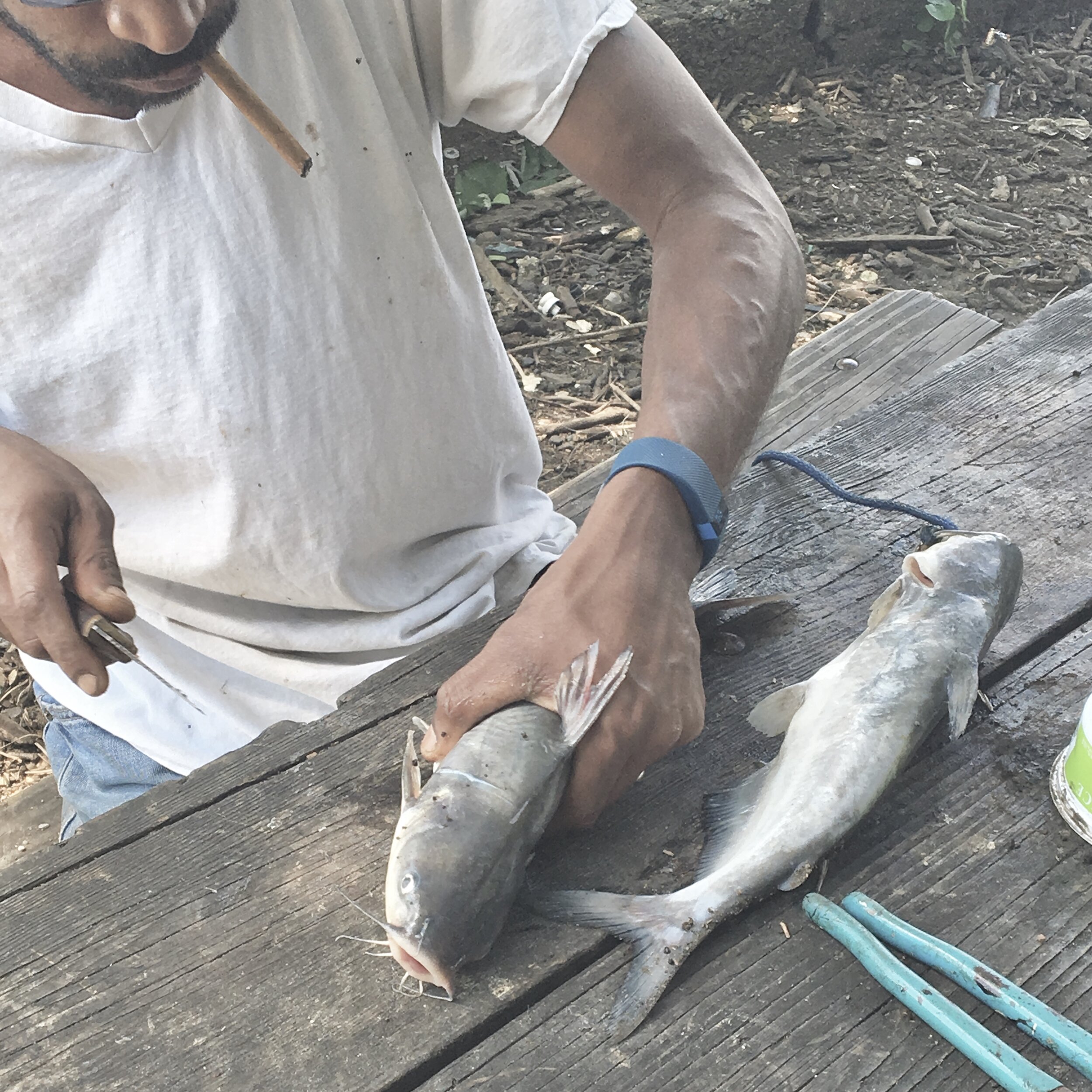

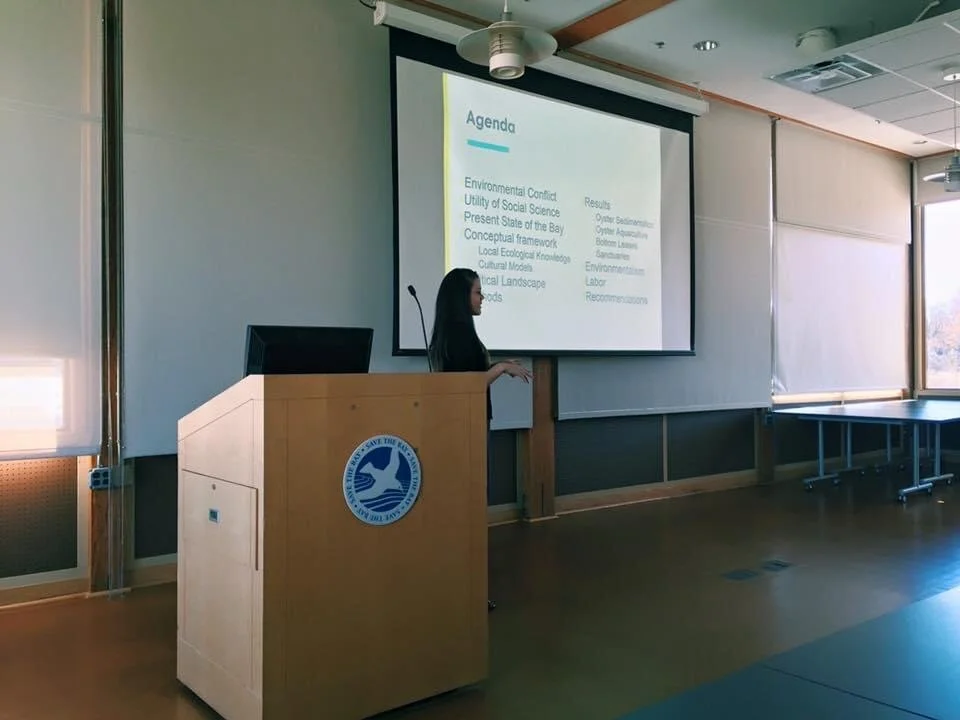

— Jane Lubchenco and Steven D. Gaines
I have over ten years of experience working at the intersection of scientific research, community perspectives, and international diplomacy to address pressing challenges in ocean sustainability. I am driven by a commitment to equitable, science-informed ocean governance in a changing climate. I strive to generate knowledge and build partnerships that support resilient ocean systems, inclusive decision-making, and just outcomes for both the ocean and the communities that rely on it.
Current Affiliations: U.S. National Oceanic and Atmospheric Administration (NOAA) and the University of Miami Rosenstiel School of Marine, Atmospheric, and Earth Science
Areas of Expertise: Fisheries Management, Biological Oceanography, Marine Social Science, Science Diplomacy, International Development, UN Sustainable Development Goals
I am currently pursuing a PhD in Environmental Science and Policy focused on sustainable management of Atlantic tunas in the face of climate change. Tunas and tuna-like species are valuable fish which are important for economies, cultures, and recreation of coastal communities in several countries around the Atlantic, from the U.S. and Canada to West Africa and beyond. However, the migratory patterns of these stocks make them difficult to manage given the distances they travel and their ability to cross international boundaries. The migration patterns of these populations necessitate management by a Regional Fishery Management Organization (RFMO) which determines a Total Allowable Catch (TAC).
Recent studies have demonstrated that catch of tunas is increasing in high latitudes and decreasing in low latitudes due to climatic factors; however, the International Commission for the Conservation of Atlantic Tunas (ICCAT), the RFMO responsible for Atlantic tunas, assumes that migration patterns of stocks are geographically and temporally stable. My dissertation will investigate the ways in which fisheries managers could take into account the reality of changing temporal and spatial distribution of Atlantic tunas due to climate change, the extent to which climate change is a part of ICCAT discourse, and impacts of climate-induced migration shifts on small-scale fishers in Barbados.
Photo Credit: NOAA
For five years, I managed NOAA Oceanic and Atmospheric Research’s international cooperation portfolio in Europe, North America, Central and South American, and the Caribbean. I wrote and implemented numerous international legal agreements between NOAA and our international counterparts to advance cooperation in oceanography, meteorology, and earth observation. This included crafting Memorandums of Understanding, Letters of Intent, Cooperation Agreements, and other documents in conjunction with NOAA General Counsel and the Department of Commerce Office of General Counsel.
I planned and executed several bilateral meetings with foreign institutes including the French Research Institute for the Exploration of the Sea (Ifremer), the Caribbean Institute for Meteorology and Hydrology (CIMH), the Brazilian Institute for Space Research (INPE), the Brazilian Space Agency (AEB), the Marine Institute of Ireland, and the European Centre for Medium-Range Weather Forecasts (ECMWF), among others. I often conducted site visits and planned trips to foreign institutes for NOAA senior officials, including the NOAA Chief Scientist and NOAA Administrator.
I also represented the United States at high-level science and technology joint commission meetings led by the Department of State, and briefed several U.S. Embassies on NOAA’s international work, including the U.S. Embassy in Ottowa, the U.S. Embassy in Barbados, the U.S. Mission to UNESCO in Paris, and the U.S. Consulate in Rio de Janeiro.
I also planned outreach events surrounding international research campaigns to engage local communities. Most notably, I spearheaded the launch of the ATOMIC/EURC4A campaign in Barbados and crafted a complex event at the Barbados Grantley Adams International Airport which involved a press conference and a tour of several aircraft, including the NOAA Hurricane Hunters WP-3D. and planned an Open House of the NOAA Ship Ronald H. Brown for Barbados government officials, U.S. Embassy staff, and school children.
ATOMIC/EURC4A Launch Press:
https://research.noaa.gov/2021/08/25/new-research-helps-crack-the-mystery-of-clouds-to-improve-climate-prediction/
https://www.barbadosadvocate.com/news/project-crucial
https://barbadostoday.bb/2020/01/25/improved-weather-and-climate-predictions-coming/
https://barbadostoday.bb/2020/01/28/ready-to-fly-barbadian-students-to-get-exposure-to-drone-training/
https://barbadostoday.bb/2020/01/31/preserve-protect-prosper-visiting-noaa-team-to-help-government-grow-blue-economy/
Photo Credit: NOAA
In 2017, the United Nations General Assembly created the UN Decade of Ocean Science for Sustainable Development (2021-2030) (‘the Ocean Decade’) to stimulate ocean science and the generation of knowledge to reverse the cycle of decline of the state of the ocean for the benefit of all people. The Ocean Decade provides a global framework for scientists and stakeholders alike to develop the scientific knowledge and the partnerships needed to better understand the ocean and achieve the SDG 2030 Agenda. The UN General Assembly mandated UNESCO’s Intergovernmental Oceanographic Commission (IOC) to coordinate the preparations and implementation of the Decade.
In 2021, I completed a secondment to the Intergovernmental Oceanographic Commission’s United Nations Decade of Ocean Science for Sustainable Development Coordination Unit (DCU) located in Paris, France. I reviewed and scored approximately 72 submissions to the Call for Decade Actions and evaluated them based on the criteria established in the Decade Implementation Plan. I also contributed to the organization of meetings of the Interim Decade Advisory Board (IDAB), and helped prepare the official meeting report for distribution to the IDAB members. Finally, I coordinated multiple briefings for proponents of endorsed Decade Actions including briefings for Network Programmes, Communications Focal Points, Early Career Ocean Professionals, and multiple Communities of Practice.
Photo Credit:
IOC/UNESCO
J. Allison
In 2017, I participated as a scientist aboard the NOAA Ship R/V Nancy Foster on a cruise from Tampa, FL to Charleston, SC. NOAA’s National Centers for Coastal Ocean Science led an 18-day expedition aboard NOAA Ship R/V Nancy Foster to map, survey, and sample deep-sea coral ecosystems in the eastern Gulf of Mexico and the South Atlantic Bight, focusing on management priority areas identified by the Gulf of Mexico Fishery Management Council and the South Atlantic Fishery Management Council. On the cruise, I was responsible for processing images captured by the ROV Odysseus to identify corals and generating media content and blog posts for the Southeast Deep Coral Initiative.
Photo Credit:
NOAA Southeast Deep Coral Initiative
NOAA Southeast Deep Coral Initiative and Pelagic Research Services
National Undersea Research Center at UNC, Wilmington
In 2019, I led United States preparations for the UN Open-Ended Informal Consultative Process on Oceans and the Law of the Sea (ICP) at the United Nations General Assembly in New York and served as a member of the U.S. delegation to the ICP meeting.
In 1999, the United Nations General Assembly created the ICP to facilitate the annual review by the General Assembly, in an effective and constructive manner, of developments in ocean affairs and the law of the sea by considering the Secretary-General’s annual report on oceans and the law of the sea and by suggesting particular issues to be considered by it (resolution 54/33).
The ICP is intended to facilitate the annual review by the General Assembly of developments in ocean affairs and the law of the sea by considering the Secretary-General’s report on oceans and the law of the sea and by suggesting particular issues to be considered by the General Assembly, with an emphasis on identifying areas where coordination and cooperation at the intergovernmental and inter-agency levels should be enhanced.
I led preparations for the annual ICP held in 2019, the focus of which was the UN Decade of Ocean Science for Sustainable Development. I created the United States Contribution to the Office of Legal Affairs, available here.
Photo Credit:
A. Kazie
- 5. K. Geddes
From 2017-2018, I contributed to the management and implementation of United States involvement in the Galway Statement on Atlantic Ocean Cooperation and subsequently the All-Atlantic Ocean Research Alliance, a trilateral agreement between the U.S., Canada, and the European Union to conduct joint research in the North Atlantic to promote the sustainability of our shared resources for the benefit of all. The Galway Statement laid the ground work for fostering collaborative research and cross-disciplinary efforts, revolutionizing the way we study ocean ecosystems, including the deep sea. I supported working groups in seabed mapping, ecosystem-based fisheries management, and ocean literacy. I also engaged with the sister agreement that followed in the footsteps of the Galway Statement, the Belem Statement, a joint declaration on Atlantic Ocean Research and Innovation Cooperation between the European Union, South Africa, and Brazil, focused on collective research in the South Atlantic.
Photo Credit:
K. Geddes
G. Khurtsilava
From 2017-2021, I served as a U.S. delegate to the Intergovernmental Oceanographic Commission (IOC) of UNESCO, a U.S. focal point for the UN Decade of Ocean Science for Sustainable Development, and the coordinator of the U.S. delegation to multiple IOC Assembly and Executive Council meetings in Paris, France. I was responsible for coordinating across several NOAA Line Offices and multiple U.S. agencies to develop the U.S. position to the IOC. I wrote several U.S. position papers, and managed the development and clearance of all position papers for the IOC Executive Council and Assembly. I also contributed to the management of the U.S. Committee for the IOC.
In spring 2016, I served an an intern at the White House Council on Environmental Quality in the Executive Office of the President. I worked on the Land and Water Team under the Associate Director for Wildlife. The Obama administration prioritized summarizing significant environmental advances towards the end of Obama’s second term; as such, I contributed to reporting on the number of species that had been removed from being listed as Endangered or Threatened under the Endangered Species Act (ESA). I also contributed to the implementation of the 2015 Memorandum on Incorporating Ecosystem Services into Federal Decision Making, the 2013 Executive Order on Combating Wildlife Trafficking, and the 2010 Executive Order on Chesapeake Bay Protection and Restoration. I enjoyed facilitating meetings with a large variety of stakeholders, including tribal leaders, religious groups, and local and regional leaders from across the U.S, and I learned that I enjoy a fast-paced environment.
Reports:
Obama White House Archives, Wildlife Wins: Obama Administration Successes in Protecting Our Nation’s Species
Medium, How the Obama Administration is Protecting America's Wildlife
Press:
https://blog.nwf.org/2017/01/president-obamas-wildlife-conservation-wins/
http://www.takepart.com/article/2016/05/28/obama-wildlife-wins-black-bear
https://archive.thinkprogress.org/with-endangered-species-act-under-attack-obama-manages-to-score-99-wildlife-wins-761df1e48767/
Photo Credit: J. Bishop
In the summer of 2016, I completed an internship as a Subsistence Fishing Research Assistant at the National Park Service, National Capitol Region where I conducted field research on recreational and subsistence fishing in the Anacostia and Potomac Rivers in an effort to understand patterns of fish consumption, fish sharing, and perception of risk among diverse communities in Washington, DC. I utilized an interdisciplinary research approach that combined qualitative data from ethnographic interviews and quantitative statistical analysis using descriptive, bivariate and multivariate techniques to holistically describe fishing activities. Our results contributed to NHPE Section 106 documentation of subsistence fishing in National Capital Region parkland.
Photo Credit: K. Geddes
In January 2016, I completed a winter study abroad through the University of Maryland School of Public Policy on Socio-Ecological Systems, Environmental Policy, and Sustainable Development in Indonesia. This course focused on the systemic interconnections between Indonesia’s environmental challenges and development strategies with a focus on the interface between local governance systems and global policies, especially in the face of climate change. We met with local leaders across Bali, Sumatra, and Jakarta and had the chance to visit several Subak traditional agricultural systems, Gunung Leuser National Park, rescued elephants in in Tangkahan, the coral reefs of Panglima Laot, and the incredible biodiversity of Bukit Lawang.
Check out the course blog here.
Photo Credit
L. Clode
K. Geddes
K. Geddes
C. Westmont
In 2015, I conducted my masters research in collaboration with the Chesapeake Bay Foundation (CBF). I independently founded the first initiative at CBF to explore the complex human and community dimensions of Chesapeake Bay management and restoration and independently wrote and managed IRB documentation for the project. I conducted thirteen ethnographic, semi-structured interviews with key Chesapeake Bay stakeholders to understand the balance between conservation goals and the preservation of fishing jobs and the perception of oyster aquaculture among the watermen community of Maryland.
Photo Credit
W. Goldsborough
A. Cox-Tennant
In 2012, I participated in three cruises on the R/V Endeavor as a Research Assistant with the Georgia Institute of Technology Biological Oceanography Lab. I spearheaded the construction of spatial profiles of cyanobacteria using on-board flow cytometry and measured nitrogen fixation rates, particulate nitrogen, denitrification, and chlorophyll-a levels at research sites throughout the Gulf of Mexico. I learned to operated CTD Rosette and MOCNESS sampling systems on deck and prepared samples for isotopic analysis. I also presented research results at the Georgia Tech Undergraduate Research Symposium.